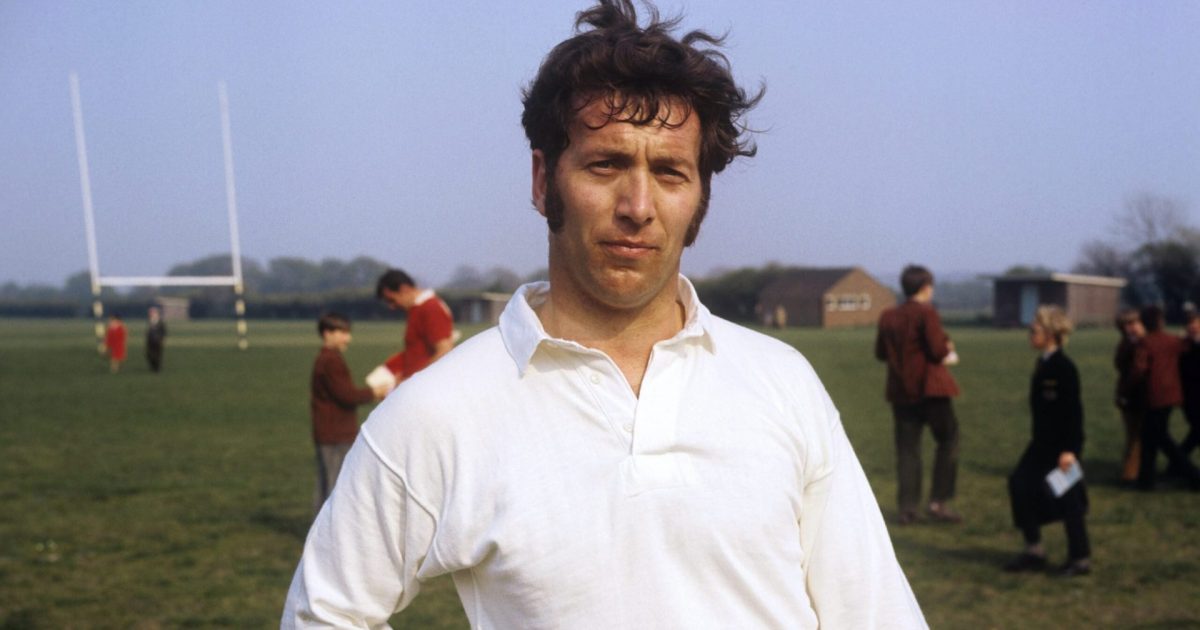Whether it was as a player or a coach, John Dawes had the Midas touch.
Welshman Dawes, who has died at the age of 80, remains the only player to have captained the British and Irish Lions to a Test series triumph against New Zealand.
But not content with that spectacular success 50 years ago, he also skippered Wales to a Five Nations Grand Slam and forged an enviable coaching reputation, masterminding four Five Nations titles and two Grand Slams in five years during Wales’ 1970s golden era when players like Phil Bennett, Gerald Davies and JPR Williams reigned supreme.
Dawes coached the Lions when they returned to New Zealand in 1977, and although it proved unsuccessful in terms of the Tests, his place among rugby royalty had already been confirmed.
Born in the south Wales valleys village of Abercarn, near Newbridge, on June 29, 1940, Dawes attended Lewis School Pengam, whose fellow past pupils include former MP Neil Kinnock and British Army veteran Simon Weston.
He then headed to University College of Wales, Aberystwyth – where he gained a chemistry degree – and Loughborough College.
Dawes’ rugby career began at Newbridge, where he shone as a centre, before making a pivotal move to London and becoming a driving force behind Richmond-based London Welsh’s emergence as arguably the leading club side in world rugby.
Dawes, who made his Wales debut against Ireland in 1964 – he won 22 caps across seven years, skippering his country on six occasions – was appointed captain of the Exiles, and effectively worked as player-coach from the 1965-66 season.
He evolved a playing style based around high fitness levels and pace of movement with the ball. With players such as Williams, John Taylor and Mervyn Davies alongside him, he inspired London Welsh to memorable heights of consistency and excellence.
Former Wales flanker Dai Morris once described opposing Dawes’ team as like “facing the Harlem Globetrotters with studs on”.
After Dawes captained Wales to a Grand Slam in 1971, his appointment as Lions leader in New Zealand alongside coach and fellow Welshman Carwyn James, surprised no-one, and both men rose to the challenge superbly.
A 26-game tour lasted for three months, and the Lions suffered a solitary defeat in New Zealand – a second Test reversal in Christchurch – but victories in Dunedin and Wellington, before a fourth Test draw at Eden Park, Auckland, ensured that history was made.
“You didn’t realise at the time just how big a thing we were achieving, not at all,” Dawes said, in an interview with Wales Online last year.
“The memory of it all is one of great pleasure and luck of being in the right place at the right time, and playing with a great bunch of boys of all nationalities. You live with these boys, you travel with these boys and it was just a thrill.
“Everyone was part of it, there were no superstars, and playing under Carwyn James, who was a gentleman, was top class. It was such an experience.”
If that tour was to provide a lifetime memory, then so too did the 1973 Barbarians versus New Zealand encounter in Cardiff, when Dawes, who was awarded an OBE a year earlier, captained the Baa-baas and played his part in what is still widely regarded as rugby union’s greatest try.
It was scored by Gareth Edwards and described by BBC match commentator Cliff Morgan as follows: “Kirkpatrick to Williams. This is great stuff. Phil Bennett covering. Chased by Alistair Scown. Brilliant. Oh, that’s brilliant. John Williams, Bryan Williams. Pullin. John Dawes, great dummy. To David, Tom David, the halfway line. Brilliant by Quinnell. This is Gareth Edwards. A dramatic start. What a score!”
It was box-office rugby that had Dawes’ stamp all over it, and he subsequently recalled in an interview with The Independent: “I’ve lived on that for dinner after dinner. People always say to me, ‘was it a dummy?’ And I say, ‘If Cliff Morgan says it was a dummy, then it was a dummy’.”
He coached Wales until 1979, enjoying considerable success, and he was later inducted into the Welsh rugby international players’ hall of fame, and then World Rugby’s hall of fame.
Dawes went on to become Wales’ national coaching organiser – a full-time role – which was a position he held until 1990. After a spell in London, he moved back to Cardiff in 1998, when he effectively retired.
Dawes is survived by his partner Jill, two children – Michael and Catherine – he had with wife Jan, and five grandchildren.
Michael played for London Welsh, and Dawes’ grandson Rhodri has been a London Welsh first-team regular for the past three seasons.











































































